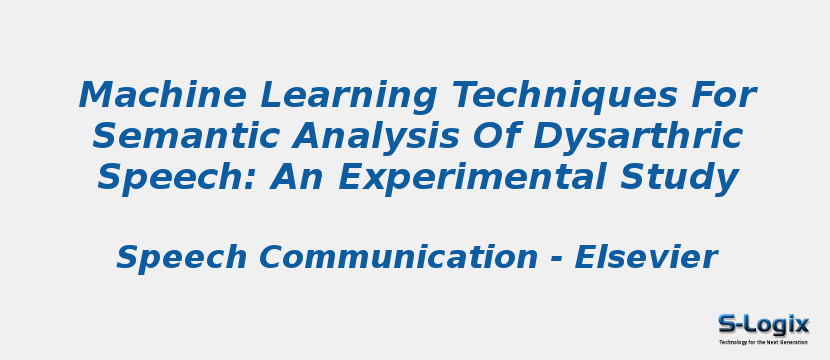Research Area: Machine Learning
We present an experimental comparison of seven state-of-the-art machine learning algorithms for the task of semantic analysis of spoken input, with a special emphasis on applications for dysarthric speech. Dysarthria is a motor speech disorder, which is characterized by poor articulation of phonemes. In order to cater for these non-canonical phoneme realizations, we employed an unsupervised learning approach to estimate the acoustic models for speech recognition, which does not require a literal transcription of the training data. Even for the subsequent task of semantic analysis, only weak supervision is employed, whereby the training utterance is accompanied by a semantic label only, rather than a literal transcription. Results on two databases, one of them containing dysarthric speech, are presented showing that Markov logic networks and conditional random fields substantially outperform other machine learning approaches. Markov logic networks have proved to be especially robust to recognition errors, which are caused by imprecise articulation in dysarthric speech.
Keywords:
Machine Learning Techniques
Semantic Analysis
Dysarthric Speech
Deep Learning
Author(s) Name: Vladimir Despotovic, Oliver Walter, Reinhold Haeb-Umbach
Journal name: Speech Communication
Conferrence name:
Publisher name: Elsevier
DOI: 10.1016/j.specom.2018.04.005
Volume Information: Volume 99, May 2018, Pages 242-251
